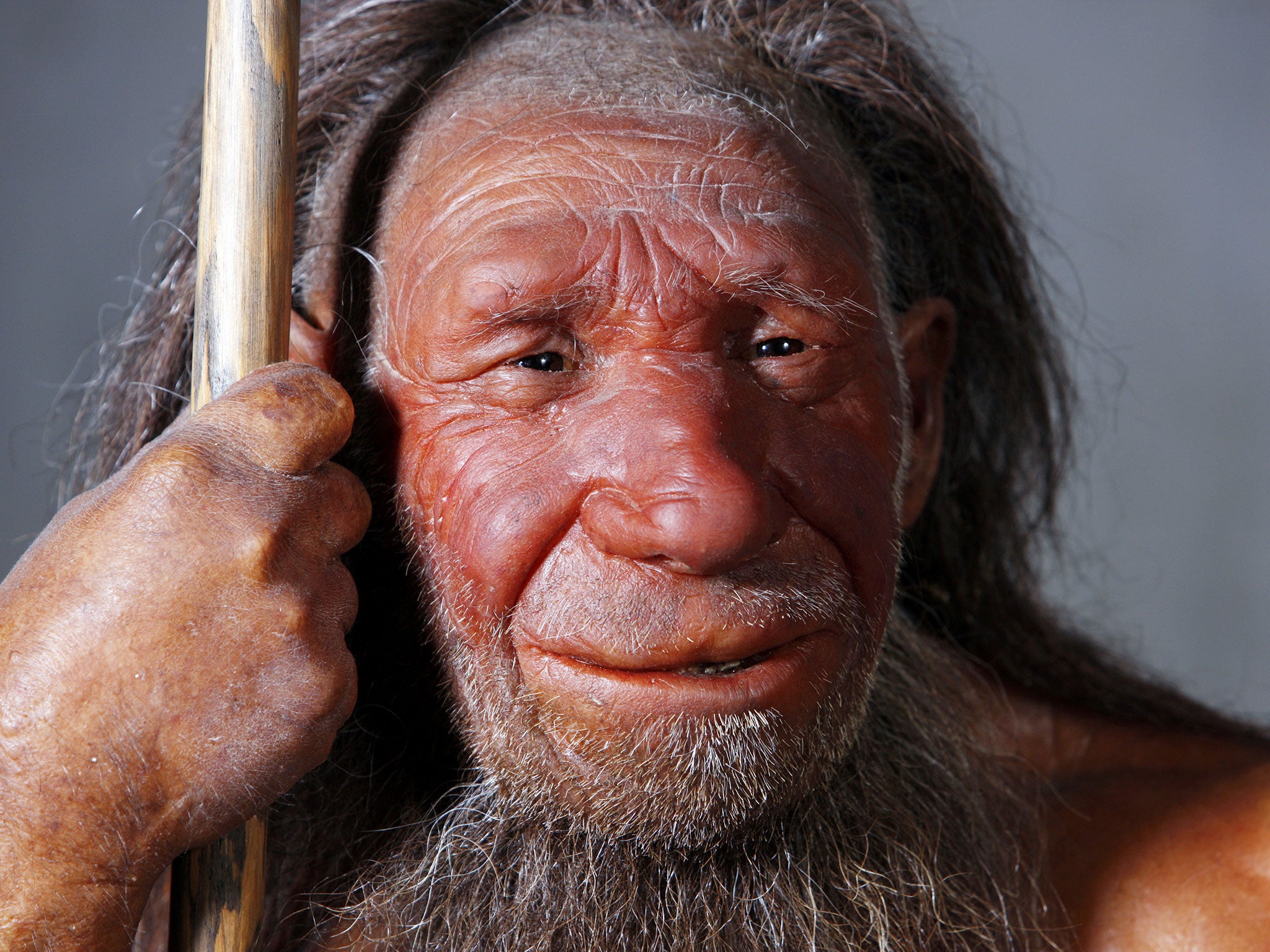Modern health problems 'could have origins in Neanderthal interbreeding'
Study finds genetic variation inherited from early breeding with Homo sapiens could make individuals susceptible

Your support helps us to tell the story
From reproductive rights to climate change to Big Tech, The Independent is on the ground when the story is developing. Whether it's investigating the financials of Elon Musk's pro-Trump PAC or producing our latest documentary, 'The A Word', which shines a light on the American women fighting for reproductive rights, we know how important it is to parse out the facts from the messaging.
At such a critical moment in US history, we need reporters on the ground. Your donation allows us to keep sending journalists to speak to both sides of the story.
The Independent is trusted by Americans across the entire political spectrum. And unlike many other quality news outlets, we choose not to lock Americans out of our reporting and analysis with paywalls. We believe quality journalism should be available to everyone, paid for by those who can afford it.
Your support makes all the difference.Many modern health problems, ranging from depression to nicotine addiction, could have their origins in the limited interbreeding between early Homo sapiens and Neanderthals more than 40,000 years ago, scientists said.
A study of the DNA of 28,000 people has found that some of the genetic variation inherited as a result of the cross-breeding may have made some individuals susceptible to a wide range of disorders.
“We discovered associations between Neanderthal DNA and a wide range of traits, including immunological, dermatological, neurological, psychiatric and reproductive diseases,” said John Capra of Vanderbilt University in Nashville, Tennessee, of the latest study, published in the journal Science.
Neanderthals were a separate species of early humans that lived across Western Europe into Central Asia more than 200,000 years ago until they went extinct about 40,000 years ago soon after the arrival of anatomically modern humans, Homo sapiens, in Europe.
A comparison of the Neanderthal genome with the genetic variation seen in modern-day people found for instance that sun-induced skin damage in fair-skinned, blue-eyed people called keratosis appears to be linked to the inheritance of genetic variations that stem from the Neanderthal lineage.
In another study, it was found that a specific bit of the Neanderthal DNA appears to increase the risk of developing nicotine addiction, while a number of genetic variants influence the risk of depression.
Join our commenting forum
Join thought-provoking conversations, follow other Independent readers and see their replies
Comments